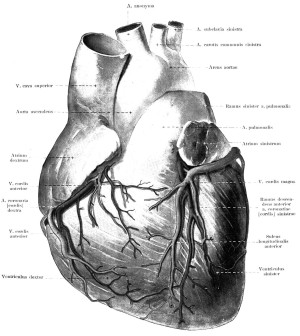- 10 Strategies to Overcome Insomnia
- Could Artificial Sweeteners Be Aging the Brain Faster?
- Techniques for Soothing Your Nervous System
- Does the Water in Your House Smell Funny? Here’s Why
- Can a Daily Dose of Apple Cider Vinegar Actually Aid Weight Loss?
- 6 Health Beverages That Can Actually Spike Your Blood Sugar
- Treatment Options for Social Anxiety Disorder
- Understanding the Connection Between Anxiety and Depression
- How Daily Prunes Can Influence Cholesterol and Inflammation
- When to Take B12 for Better Absorption and Energy
New Blood Test May Help Predict Heart Disease Risks in Obese Black Teens


A new blood test appears to help predict the risk for future heart disease among black teens struggling with obesity.
The test was designed to measure changes in the T-cell status of obese teens. T-cells are a key component of the immune system, and increased T-cell activation reflects the kind of systemic inflammation that is often triggered by obesity, the researchers explained. Inflammation has been linked to heart disease, they added.
A blood test trial involving both white and black teens revealed that obese black girls seem to be particularly prone to such increases in T-cell activity. Obese white boys and girls did not display a similar inflammatory response.
The finding, along with the blood test itself, raises the prospect that clinicians may be better able to spot signs of impending heart disease long before it strikes.
“Obesity in the formative years is already priming the system to develop cardiovascular disease later in life,” lead researcher Dr. Carmen De Miguel, a postdoctoral scholar at the University of Alabama at Birmingham, explained in an American Heart Association news release.
Being able to predict an increased risk for adult heart disease “could allow for preventive therapies and help changing exercise and diet habits to make the teen less prone to heart disease in adulthood,” De Miguel added.
“We think that the fact that the girls do not decrease the numbers of activated T-cells could be important in explaining the high risk that black females have of developing cardiovascular disease later in life,” she added.
The trial involved 100 public school students between the ages of 14 and 20 in Augusta, Ga. Some teens were obese, while others were “lean,” the researchers said.
De Miguel and her colleagues plan to present their findings Thursday at the American Heart Association’s latest High Blood Pressure Conference, in Washington, D.C.
Research presented at meetings should be viewed as preliminary until published in a peer-reviewed journal.
More information
There’s more on inflammation and heart disease at the American Heart Association.
Source: HealthDay
Copyright © 2026 HealthDay. All rights reserved.










